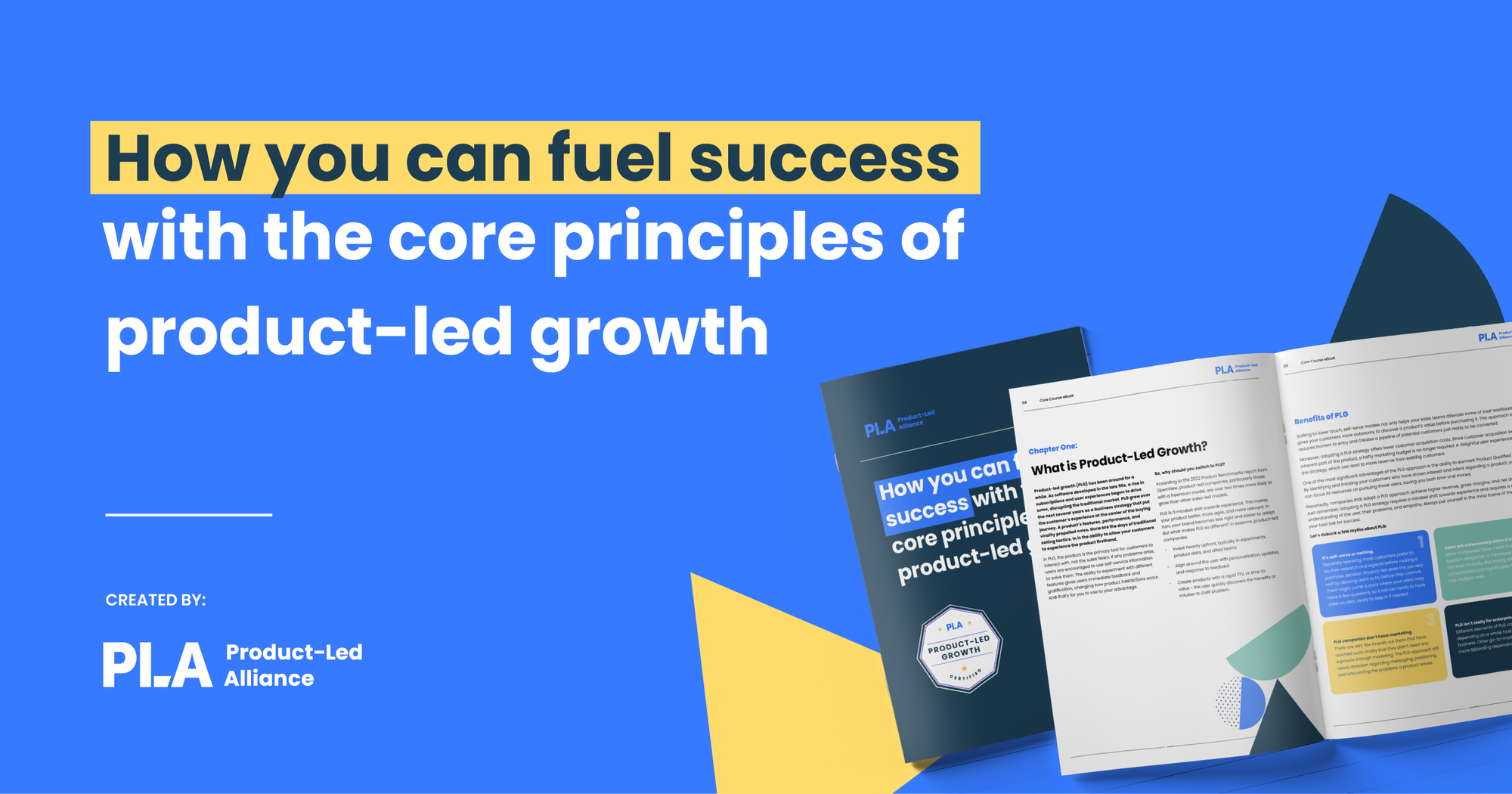Hiring the perfect product manager (PM) is a big deal for any company aiming to create killer products. PMs are the brains behind innovation, making sure that products hit the sweet spot between customer desires, market trends, and company goals.
That's why you need a solid hiring process to spot those talents with the right skills, experience, and mindset. Join us as we break down the product manager hiring process into simple steps and dive into the different roles and skills needed for the job. This is the perfect resource for both employers and future product managers alike.
Defining the product manager role
Before jumping into the hiring pool, getting a clear picture of what you want your product manager to do is essential. This means understanding their tasks, responsibilities, and the skills they need to excel at. Typical product manager duties include:
- Product strategy and vision
- Market research and analysis
- Roadmap planning and prioritization
- Cross-functional collaboration
- Stakeholder management
- Product development and iteration
A product manager navigates as the chief strategist, steering the product ship toward its envisioned destination. They meticulously craft the overarching concept, envisioning the product's purpose, problem-solving attributes, and alignment with the company's strategic objectives.
Product managers need to understand market dynamics, excel in the art of communication, and prioritize tasks and features. PMs are the mediators when it comes to stakeholder management and solicit feedback, address concerns, and deftly manage expectations, all while advancing the product toward its ultimate objectives.
In essence, the role of a product manager is a unique amalgamation of creativity, strategic insight, diplomacy, and an element of organizational wizardry. They are the unsung heroes who ensure that products and services transcend mere functionality to achieve exceptional excellence.
The next time you enjoy a favorite product or service, send a silent acknowledgment to the product managers who worked diligently behind the scenes to make the product happen.

Crafting a compelling job description
So, you need a PM for your business. Firstly, you need a well-crafted job description as the foundation for a successful hiring process. It should provide potential candidates with a clear understanding of the role and your company's expectations. Key elements to include in the job description are:
- A concise summary of the role
- Specific responsibilities and tasks
- Required qualifications and skills
- Company culture and values
- Information about the team and reporting structure
- Details about the application process and deadlines
In your job posting, it’s best to include a short ‘About Us’ section to give people an understanding of your company and the values you hold. Next, you should lay out the responsibilities required for the position so people know exactly what they’re getting into and precisely what you’re looking for.
Example
About Us: At [Company Name], we are committed to pushing the boundaries of innovation in the [Industry] sector. We're seeking an experienced Product Manager to lead the charge in driving our product strategy and development. If you're a seasoned Product Manager with a track record of delivering successful products, we want to hear from you.
Responsibilities:
- Define and communicate the product vision and strategy.
- Lead cross-functional teams through the entire product development lifecycle.
- Conduct market research, competitive analysis, and customer feedback analysis.
- Create and maintain a detailed product roadmap.
- Prioritize feature development based on business goals and user needs.
- Set and track key performance indicators (KPIs) to measure product success.
- Collaborate with engineering, design, and marketing teams to deliver high-quality products.
- Mentor and guide junior members of the product management team.

Sourcing and attracting candidates
Once the job description is in place, you need to attract potential candidates. This can be done through various channels:
- Job boards and career websites
- Social media platforms
- Employee referrals
- Professional networks
- Recruitment agencies
Let's explore some cool ways to find these heroes, starting with our trusty sidekick, LinkedIn, and other unexpected places.
LinkedIn: The go-to hangout
LinkedIn is like a clubhouse for professionals. When you're on the hunt for product managers, you need to start here. Use LinkedIn's search filters to find candidates who match your requirements, whether it's by location, experience level, or specific product management skills. And don't forget to hit up those LinkedIn groups and communities where product managers like to hang out – it's where the real networking magic happens.
Job boards: The old reliable
Good ol' job boards are the classic way to find talent. Think of platforms like Indeed and Glassdoor as your trusty newspaper ads. Post your job listing and wait for those resumes to roll in. Spice up your job descriptions to make them sound as exciting as a blockbuster movie. And consider using job aggregation services to get your listing out there to as many potential heroes as possible.
Networking events and conferences: Where heroes assemble
Sometimes, it's all about meeting people face-to-face. Networking events and industry conferences are like the Avengers HQ for product managers. Attend these shindigs, join meetups, and hang out at panel discussions. You'll get to chat with product managers in their natural habitat and maybe even recruit a few to your team. Plus, you'll get the inside scoop on the latest product management trends – it's like getting a sneak peek at the sequel!
Online communities and forums: The digital hideouts
Beyond LinkedIn, platforms like Product Management Stack Exchange and Reddit's Product Management subreddit are where the online superheroes chat. Dive into these digital communities, share your job openings, and have some awesome conversations. You might just find the perfect candidate who's been hiding in plain sight.
Referrals and internal talent: Trust your allies
Don't forget about the trusty allies within your organization. Encourage your team to refer potential candidates – they often know who’d be a great fit. And don't rule out the possibility of nurturing your own talent. Sometimes, the best product managers are right under your nose, waiting for their chance to shine.
Here are some sample questions to ask when seeking referrals:
- Can you comment on the candidate's ability to prioritize tasks and manage time effectively, especially when juggling multiple projects or deadlines?
- How would you rate the candidate's leadership and decision-making abilities within a product management context?
- Were there any instances where the candidate had to handle conflicts or disagreements within the team, and if so, how did they manage these situations?
- How would you describe the candidate's communication skills, both in terms of articulating ideas and collaborating with cross-functional teams?
- Did the candidate demonstrate effective problem-solving skills and adaptability when faced with challenges or unexpected obstacles in their previous roles?
These questions should help you gather valuable feedback from referrals and paint a clearer picture of the candidate's qualifications and potential fit for your organization.

Screening resumes
Screening resumes for a product management gig is a bit like rummaging through a treasure chest to find the shiniest gems.
First off, keep an eye out for relevant experience. Check if they've been in the product management game before or if they've got a background that could easily translate into it. Look for clues that they know their way around things like market research, roadmap planning, and collaborating with cross-functional teams – those are the secret sauce ingredients.
Also, see if they've got a knack for problem-solving and making data-driven decisions. Don't forget to scan for any special skills or certifications, and of course, make sure they're in sync with your company culture.
Finally, keep an eye out for any telltale signs of passion and enthusiasm for the world of product management. After all, you want someone who's as excited about your product as you are!
Conducting interviews
Interviews are an opportunity to assess a candidate's qualifications, interpersonal skills, and cultural fit. Questions should focus on their product management experience, problem-solving abilities, and alignment with the company's values and goals.
Here are some example questions you can use when interviewing candidates for a Product Manager position:
- Tell me about a product you've managed in the past. What was your role, and what were the key outcomes?
- How do you prioritize features or enhancements in a product roadmap?
- Can you describe your process for conducting market research and how you use it to inform product decisions?
- Share a challenging situation where you had to balance competing priorities in a product project. How did you handle it?
- What techniques do you use to gather and prioritize customer feedback effectively?
Technical assessments
Companies might also throw in technical assessments for candidates. These could be anything from case studies and product critiques to problem-solving exercises to see how candidates handle real product situations. These are usually saved for people in the running as one of your top picks.
Providing candidates with real-world product management challenges is a valuable way to assess their problem-solving abilities and their approach to product development. This could involve asking them to create a product roadmap or analyze a market opportunity. It’s up to you to see what fits your company best and what you’ll expect from your new PM.
Behavioral vs. technical questions
We’ve addressed both behavioral and technical questions, but what’s the difference? Behavioral questions aim to uncover your soft skills, work approach, and how candidates handled past situations. They dive into experiences and help the interviewers gauge someone’s interpersonal and problem-solving skills.
On the flip side, technical questions are more like a deep dive into product management knowledge and practical abilities. These questions assess a candidate's hands-on product management expertise.
In essence, behavioral questions are about who someone is and how they work, while technical questions focus on what they can do and how well they know your product management game.
Final interviews
The last interview is when senior leadership or key stakeholders meet with the candidate to gauge their alignment with the company's vision and strategy.
This is also the candidate's chance to grill them with their own questions and get a feel for what the company is all about. It's a two-way street to make sure everyone is a good match.
Reference checks
Reference checks for a product manager candidate are a big deal because they give you the inside scoop on their past performance and what they're really like to work with. While resumes and interviews provide insights, talking to a candidate's old bosses, work buddies, or mentors gives you the full picture. It's like getting the behind-the-scenes story.
This helps you double-check a candidate’s claims, spot any potential hiccups, and figure out where they shine and where they might need a bit of polishing. Since product managers often need to be ace collaborators and communicators, these reference checks make sure their work history lines up with the gig's requirements. It's all about making a smart hire and avoiding any "uh-oh" moments down the road.
Offer and onboarding
You’ve found the perfect PM. What next? When it comes to onboarding and presenting an offer to a Product Manager you're eager to onboard, it's crucial to create a seamless transition into your team. The onboarding process should not only be a mere introduction to the company's culture and operations but also a personalized journey that aligns with the candidate's unique skills and aspirations.
Start by offering a warm welcome and a comprehensive overview of the company's mission, vision, and values. Engage in open communication to gain insights into candidates' expectations and career goals, allowing you to tailor their experience accordingly.
As you extend the job offer, ensure clarity regarding compensation, benefits, and growth opportunities, emphasizing the significant role they will play in driving product innovation and success. This not only sets the foundation for a strong professional relationship but also maximizes the chances of the Product Manager enthusiastically embracing their new role and responsibilities.
Congratulations, you’ve hired your newest PM!
Conclusion
Bringing in the perfect Product Manager is no walk in the park, but it's a game-changer. You've got to nail down the job specifics, whip up a spot-on job description, and then run a top-notch evaluation process. These steps are your trusty tools to spot those A-players who'll turbocharge your product innovation and success.
So, tweak 'em as needed to fit your organization like a comfy old pair of sneakers. When you follow these moves, you'll assemble a team of product wizards who'll help your company not just survive but thrive in this wild, wild market. Just remember, it's not only about finding your dream match for the company; it's also about helping these talented folks find their career sweet spot. Cheers to the perfect PM hunt!




 Follow us on LinkedIn
Follow us on LinkedIn




